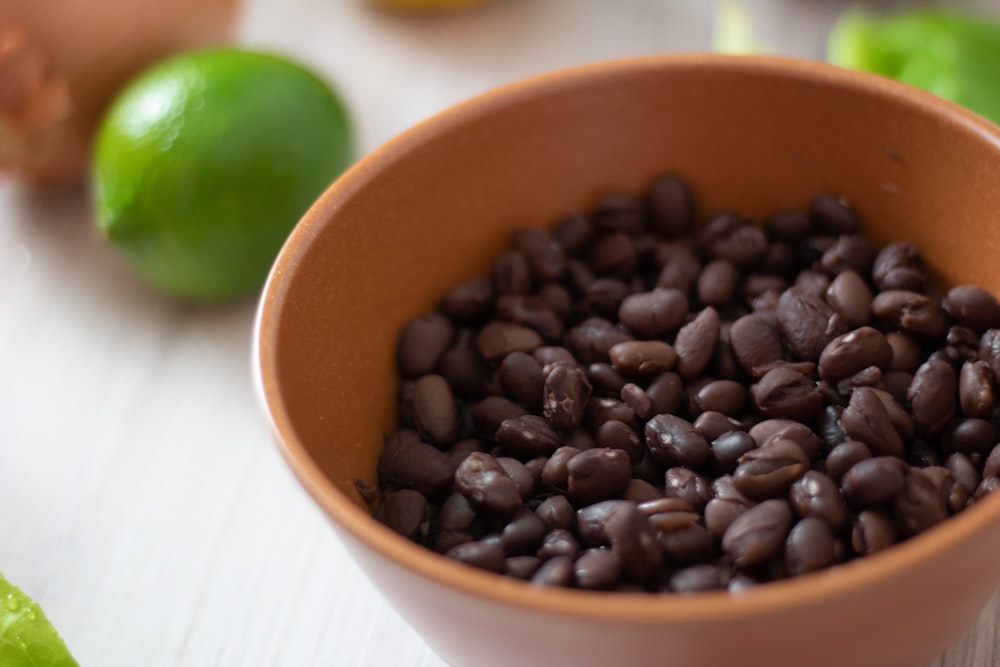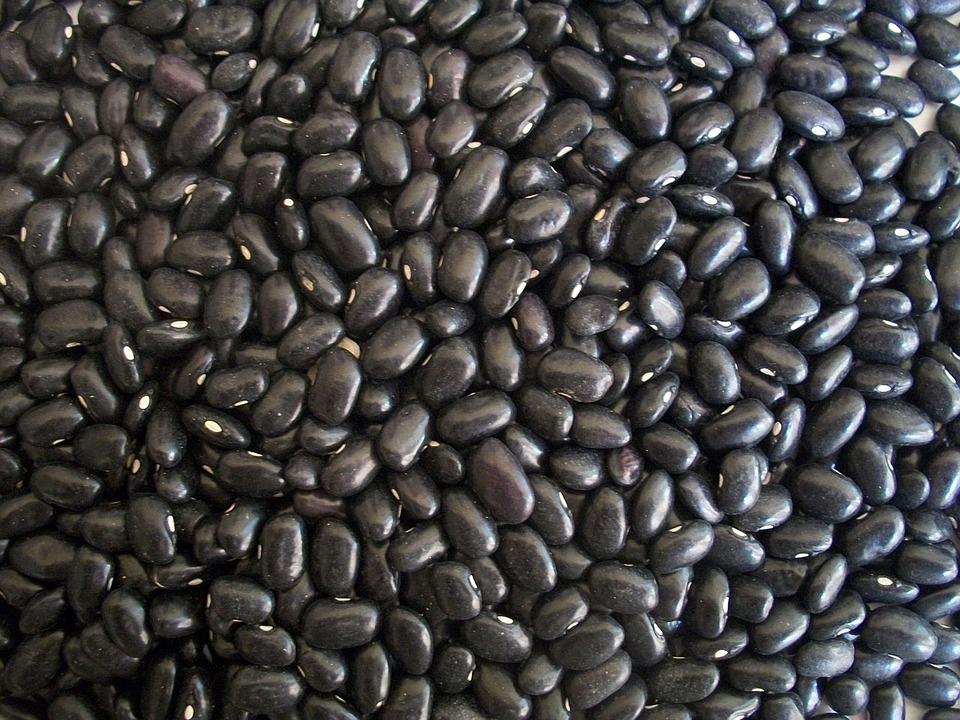Many people wonder what black beans taste like. They can be a bit bland, but you can turn a can of black beans into something special with a few simple ingredients. Soft, creamy, and mild, black beans are a great addition to any dish. They don’t have a strong flavor, so they work well in various dishes. Add onion, garlic, spices, or even jalapenos to make them extra-special. Here are some great ideas to add to your next pot of black beans. Here are some simple ideas for adding flavor and spiciness to your beans.

The first thing you should know about black beans is that they’re very versatile. You can use them for many different types of dishes. While they’re often served with rice, tortillas, and eggs, they’re also tasty cold or mashed. You can also use them in veggie burgers. Of course, the most common way to enjoy black beans is as a side dish with rice. However, if you’re looking for a more sophisticated option, try using them in a creamy gravy. Another popular option is to squeeze fresh lime juice over your beans while serving.
What are black beans?
The black bean, one of more than 500 varieties of kidney beans, is native to the Americas but has gained popularity worldwide. The turtle bean has become a staple in Cajun and Creole cuisine in Louisiana. Black beans are about the size of an oblong pea, up to 1/2-inch long, and have a boat-shaped shape similar to kidney beans. As their name suggests, black beans have black skin and a white center. When cooked, the beans have a creamy texture and a strong, slightly sweet flavor. Buying black beans in bulk is a great way to save money.
What do black beans taste like?
Soft, creamy, and mild, black beans are a great addition to any dish. They don’t have a strong flavor, so they work well in various dishes. They take on the flavor of the salt and the ingredients they are cooked with. Black beans are sweet, creamy, earthy, and meaty in flavor. In a vegetarian diet, black beans can be used to replace meat. Black beans have a soft, mild flavor that is not overpowering. As a result, they are preferred in a variety of dishes.
What are the nutrients present in black beans?
Black beans are an excellent source of fiber, plant-based protein, and many other nutrients. They are also a great source of folate, thiamin, magnesium, and phosphorus. When cooked, black beans are not considered harmful. If you have a vegetarian diet, a can of black beans is a good choice. You can prepare a healthy, filling meal for your family, and you can also try adding some vegetables to your meal.
Black beans are a great choice if looking for a low-cost, healthy, and nutritious recipe. They are the perfect ingredient for many recipes, and you can cook them with vegetables or meat and serve them with rice. If you don’t have time to cook your own, canned beans are the most convenient way to eat them. Aside from the versatility and cost-effectiveness, black beans are also great for your health.
What are the health benefits of black beans?
1) Bone health maintenance
Black beans contain iron, phosphorus, calcium, magnesium, manganese, copper, and zinc, which help build and maintain bone structure. Strength and a reliable source.
Calcium and phosphorus are essential for bone structure, while iron and zinc are essential for maintaining bone and joint strength and elasticity.
Bone stores approximately 99 percent of the body’s calcium, 60 percent of its magnesium, and 80 percent phosphorus. This means that getting enough of these nutrients through your diet is critical.
2) Blood pressure reduction
Maintaining a low sodium intake is critical for maintaining normal blood pressure. Black beans are naturally low in sodium and high in potassium, calcium, and magnesium, which have all been shown to naturally lower blood pressure.
To further reduce sodium content, purchase low sodium canned options and drain and rinse them.
3) Diabetes management
According to studies, people with type 1 diabetes who eat a high-fiber diet have lower blood glucose levels. People with type 2 diabetes may also see improvements in their blood sugar, lipids, and insulin levels. Cooked black beans provide 15 grams (g) of fiber per cup (172 g).
Based on a 2,000-calorie diet, the US Food and Drug Administration (FDA) recommends 25 grams of fiber per day, and this may differ depending on the total number of calories consumed.
4) Preventing heart disease
Black beans’ fiber, potassium, folate, vitamin B6, phytonutrient content, and lack of cholesterol contribute to heart health. This fiber aids in lowering total cholesterol levels in the blood and lowering the risk of heart disease.
Homocysteine is a compound that is prevented by vitamin B6 and folate. When too much homocysteine builds up in the body, it damages blood vessels and causes heart problems.
Black beans contain the antioxidants quercetin and saponins, which help to protect the heart. Quercetin is a natural anti-inflammatory that has been shown to lower the risk of atherosclerosis and protect against the damage caused by LDL cholesterol.
Saponins have also been shown to help lower blood lipid and cholesterol levels, protecting the heart and blood vessels.
5) Cancer prevention
Selenium is a mineral found in black beans but not in most fruits and vegetables, and it aids in detoxifying some cancer-causing compounds in the body and plays a role in liver enzyme function. Additionally, selenium has been shown to reduce tumor growth rates and prevent inflammation.
Saponins stop cancer cells from multiplying and spreading all over the body.
Consumption of fiber from fruits and vegetables, such as black beans, has been linked to a lower risk of colorectal cancer.
Black beans are high in folate, a B vitamin that aids in DNA synthesis and repair, preventing the formation of cancer cells due to DNA mutations.
What are the risks of consuming black beans?
Legumes contain oligosaccharides known as galactans, which are complex sugars that the body cannot digest due to a lack of alpha-galactosidase.
As a result, eating legumes, including black beans, is known to cause intestinal gas and discomfort in some people.
If you’re experiencing any of these symptoms after eating legumes, you might want to start slowly incorporating them into your diet. Another option is to soak the beans for longer, use sprouted beans, or drain the water used to soak the dried legumes. This eliminates some digestive issues by removing two oligosaccharides, raffinose, and stachyose.
The most critical factor in preventing disease and achieving good health is the overall eating pattern. It is preferable to eat a varied diet rather than focusing on a single food as the key to good health.
What are the uses of black beans?
Another excellent tip for black beans is to prepare them ahead of time. Whether used in a soup or casserole, they’re a great addition to any meal. And if you’re not sure what to serve your baby, you can always reheat them in the microwave or on the stove. If you’re not sure what to serve them with, consider using them in other recipes.
When it comes to preparing black beans, you can make them into a nourishing meal in various ways. They can be served with rice or tortillas and are often eaten with eggs or rice. If you’re looking for a quick and easy meal, try using black beans for a dip. They can also be mashed and mixed into veggie burgers. Of course, there’s the traditional black bean and rice dish. Some people even prefer to make their own versions of the dish by adding more peppers, chili, or vegetables. You can also enjoy them as part of vegetable curry.
For the healthiest meal for your baby, choose a recipe that incorporates black beans. They can be mixed with other foods, such as rice and shredded veggies. You can also prepare the dish by adding vegetables and herbs. You can also use them in other dishes to make them more nutritious. A classic dish of this type is black bean and rice, and a variation of this dish is black bean chili. In addition to these, black beans can be used in various dishes, including salads and soups.
Conclusion
You can use black beans in a variety of dishes. You can serve them with eggs and rice. You can also use them as a dip or cold in salads, and you can even use them in veggie burgers and soups. A black beans and rice dish is a popular variation, and a dish is the black bean chili. In addition to this, you can make various recipes with this nutritious legume.
The main difference between pinto beans and black beans is that they are slightly different in their flavor. They are similar in size and texture, but the former has a more robust and earthy taste. They both retain their structure when cooked. When preparing a dish with black beans, you should soak the beans overnight. If you can’t soak them, use them in salads or other recipes that feature a wholesome diet.

